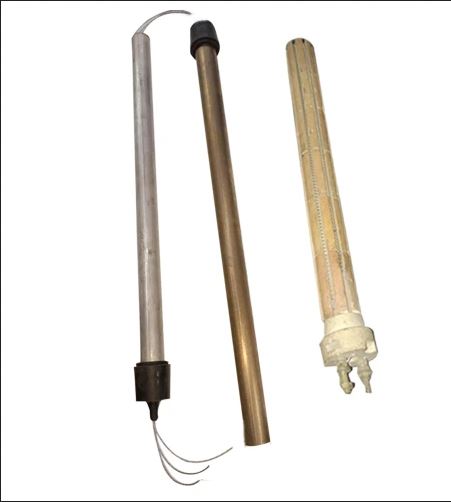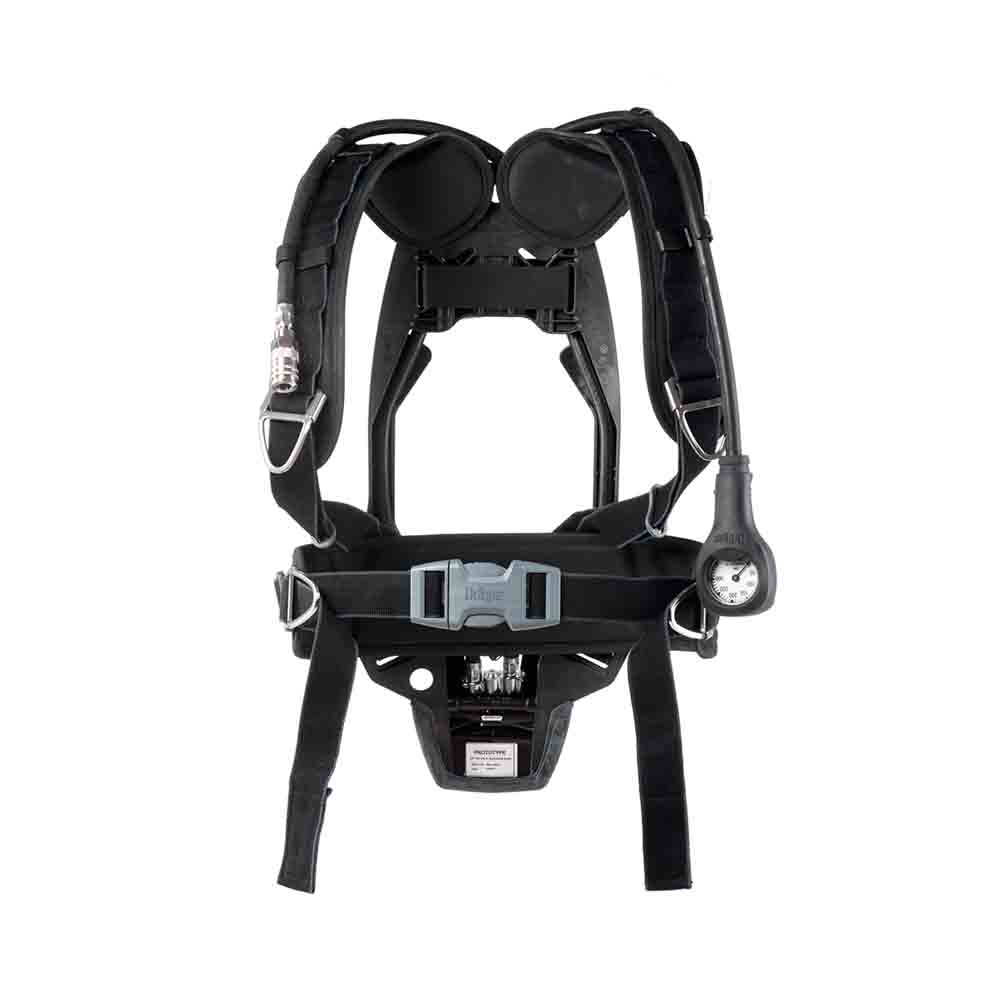In the fast-evolving healthcare industry, the demand for skilled hospital administrators is at an all-time high. Hospital administration is crucial for the efficient functioning of healthcare institutions, ensuring that they provide the best patient care while maintaining high standards of management, legal compliance, financial stability, and operational efficiency. At IMS Business School in Kerala, specialized hospital administration courses are designed to equip students with the essential knowledge and practical skills needed for a successful career in healthcare management. These courses blend theoretical learning with real-world experience, ensuring that graduates are fully prepared to meet the demands of this dynamic and challenging sector.
Curriculum Overview
IMS Business School offers comprehensive hospital administration courses that cover a wide array of essential topics required for effective management of healthcare facilities. These courses are carefully structured to provide students with an in-depth understanding of hospital operations, financial management, healthcare policies, quality assurance, human resource management, and much more. The curriculum is meticulously crafted to incorporate the latest industry trends, healthcare reforms, and technological advancements, ensuring that students are well-equipped to thrive in the ever-changing healthcare landscape.
Some of the key topics included in the curriculum are:
Healthcare Policies: Understanding the structure, policies, and regulations governing the healthcare sector is essential for effective administration. Students explore both national and international healthcare systems, the challenges they face, and how policies influence healthcare delivery.
Hospital Operations: The courses provide in-depth insights into the day-to-day management of hospitals, including workflow optimization, resource allocation, and operational efficiency. Students learn how to manage the entire hospital system, from patient admissions to discharges, while ensuring high-quality service delivery.
Financial Management in Healthcare: A crucial aspect of hospital administration, financial management covers budgeting, financial planning, revenue cycle management, and cost control. Hospital administrators need to ensure that the facility operates within budget while providing the best possible care for patients.
Healthcare Information Systems: With technology playing a key role in modern healthcare, students gain hands-on experience with healthcare management software, electronic health records (EHRs), and telemedicine systems that are essential for enhancing patient care, improving communication, and streamlining administrative tasks.
Quality Assurance: Hospital administrators must ensure that their institutions comply with the highest quality standards in healthcare. Students learn to implement quality control programs, measure performance indicators, and continually improve service delivery through systems like Six Sigma and Lean management.
Human Resource Management: One of the most important components of hospital administration is managing the workforce. Students delve into recruitment, training, performance management, and labor relations, focusing on how to build a motivated and effective healthcare team.
Hands-On Learning and Real-World Experience
IMS Business School ensures that students gain practical experience in addition to their theoretical knowledge. Through internships and training programs at leading hospitals and healthcare institutions in Kochi, students are given the opportunity to work in real-world healthcare settings. This hands-on experience is invaluable in developing the practical skills required to manage hospital operations effectively.
By working alongside seasoned professionals in a hospital environment, students can apply their classroom learning to practical challenges, such as patient care coordination, managing healthcare teams, and implementing quality improvement programs. These internships also allow students to build professional networks, gain industry insights, and establish connections that can be beneficial throughout their careers.
Guest Lectures and Industry Exposure
IMS Business School frequently organizes guest lectures, seminars, and workshops with prominent figures from the healthcare industry. These events provide students with exposure to the latest trends in hospital administration, healthcare policies, and technological advancements. By learning from experienced professionals and thought leaders, students get a broader perspective on the healthcare sector and understand its evolving challenges and opportunities.
In addition, the school hosts industry events and conferences where students can interact with top-tier healthcare administrators, medical professionals, and healthcare executives. These events are an excellent opportunity for students to learn about the future of healthcare, network with potential employers, and stay updated with industry innovations.
The Importance of Hospital Administration Courses (
https://imsgroupofinstitutions.com/digital-marketing-courses/
Hospital administration courses are designed to meet the growing demand for professionals who can effectively manage healthcare institutions and ensure high-quality patient care. The importance of these courses cannot be overstated, as healthcare administrators play a pivotal role in the success of hospitals and healthcare systems. Here are several reasons why hospital administration courses are vital:
1. Enhancing Healthcare Management
Hospital administration courses offer in-depth knowledge of healthcare management principles, including planning, organizing, staffing, and controlling hospital operations. Effective management is directly tied to the quality of patient care, as administrators make critical decisions that impact hospital efficiency and patient outcomes. Students are taught to manage the hospital’s resources efficiently while ensuring that patients receive the highest standard of care.
2. Ensuring Compliance with Healthcare Regulations
The healthcare industry is one of the most heavily regulated sectors worldwide. Administrators must stay abreast of laws and regulations set by government bodies and health authorities. Hospital administration courses teach students about compliance issues, including patient rights, confidentiality, and adherence to regulatory standards. Understanding these legal requirements helps administrators mitigate legal risks, maintain ethical practices, and ensure that healthcare facilities operate within the bounds of the law.
3. Financial Management and Resource Allocation
Financial management is crucial in any business, and hospitals are no exception. Hospital administrators are responsible for managing budgets, ensuring financial stability, reducing operational costs, and making sound financial decisions that do not compromise patient care. Courses in hospital administration provide students with the knowledge of healthcare economics, accounting, and financial analysis, empowering them to make informed decisions that support the financial health of the organization.
4. Improving Patient Care and Satisfaction
One of the most critical objectives of hospital administration is to ensure high-quality patient care. Students in hospital administration courses learn how to implement patient-centered care models, improve communication within healthcare teams, and streamline operations to enhance the overall patient experience. Administrators are taught how to develop strategies that improve patient satisfaction, reduce wait times, and ensure positive health outcomes.
5. Human Resource Management and Workforce Optimization
Hospitals rely on highly skilled and dedicated professionals to provide exceptional care. Hospital administration courses focus on human resource management, teaching students how to recruit, train, and retain a talented workforce. By fostering a supportive work environment and ensuring effective performance management, hospital administrators help build cohesive teams that work together to deliver top-notch patient care.
6. Leadership and Strategic Planning
Effective leadership is a hallmark of successful hospital administration. Hospital administrators are responsible for setting the strategic direction of their institutions and making decisions that align with organizational goals. Hospital administration courses equip students with leadership and management skills, including decision-making, strategic planning, problem-solving, and crisis management. These skills are critical for guiding hospitals through change, adapting to new technologies, and responding to shifts in patient demographics or healthcare policies.
7. Integration of Technology in Healthcare
Technology plays a transformative role in healthcare today. Hospital administration courses provide students with the skills to manage healthcare information systems, including electronic health records (EHRs), telemedicine platforms, and health management software. Administrators learn how to harness technology to improve patient care, protect data security, and streamline hospital processes, thereby enhancing overall efficiency.
8. Crisis Management and Emergency Preparedness
Hospitals must be equipped to handle emergencies such as natural disasters, pandemics, or mass casualty events. Hospital administration courses teach students how to develop emergency preparedness plans, allocate resources during crises, and ensure the continuity of care in challenging situations. With proper training, administrators can lead their hospitals through emergencies, safeguarding both patients and staff.
In the fast-evolving healthcare industry, the demand for skilled hospital administrators is at an all-time high. Hospital administration is crucial for the efficient functioning of healthcare institutions, ensuring that they provide the best patient care while maintaining high standards of management, legal compliance, financial stability, and operational efficiency. At IMS Business School in Kerala, specialized hospital administration courses are designed to equip students with the essential knowledge and practical skills needed for a successful career in healthcare management. These courses blend theoretical learning with real-world experience, ensuring that graduates are fully prepared to meet the demands of this dynamic and challenging sector.
Curriculum Overview
IMS Business School offers comprehensive hospital administration courses that cover a wide array of essential topics required for effective management of healthcare facilities. These courses are carefully structured to provide students with an in-depth understanding of hospital operations, financial management, healthcare policies, quality assurance, human resource management, and much more. The curriculum is meticulously crafted to incorporate the latest industry trends, healthcare reforms, and technological advancements, ensuring that students are well-equipped to thrive in the ever-changing healthcare landscape.
Some of the key topics included in the curriculum are:
Healthcare Policies: Understanding the structure, policies, and regulations governing the healthcare sector is essential for effective administration. Students explore both national and international healthcare systems, the challenges they face, and how policies influence healthcare delivery.
Hospital Operations: The courses provide in-depth insights into the day-to-day management of hospitals, including workflow optimization, resource allocation, and operational efficiency. Students learn how to manage the entire hospital system, from patient admissions to discharges, while ensuring high-quality service delivery.
Financial Management in Healthcare: A crucial aspect of hospital administration, financial management covers budgeting, financial planning, revenue cycle management, and cost control. Hospital administrators need to ensure that the facility operates within budget while providing the best possible care for patients.
Healthcare Information Systems: With technology playing a key role in modern healthcare, students gain hands-on experience with healthcare management software, electronic health records (EHRs), and telemedicine systems that are essential for enhancing patient care, improving communication, and streamlining administrative tasks.
Quality Assurance: Hospital administrators must ensure that their institutions comply with the highest quality standards in healthcare. Students learn to implement quality control programs, measure performance indicators, and continually improve service delivery through systems like Six Sigma and Lean management.
Human Resource Management: One of the most important components of hospital administration is managing the workforce. Students delve into recruitment, training, performance management, and labor relations, focusing on how to build a motivated and effective healthcare team.
Hands-On Learning and Real-World Experience
IMS Business School ensures that students gain practical experience in addition to their theoretical knowledge. Through internships and training programs at leading hospitals and healthcare institutions in Kochi, students are given the opportunity to work in real-world healthcare settings. This hands-on experience is invaluable in developing the practical skills required to manage hospital operations effectively.
By working alongside seasoned professionals in a hospital environment, students can apply their classroom learning to practical challenges, such as patient care coordination, managing healthcare teams, and implementing quality improvement programs. These internships also allow students to build professional networks, gain industry insights, and establish connections that can be beneficial throughout their careers.
Guest Lectures and Industry Exposure
IMS Business School frequently organizes guest lectures, seminars, and workshops with prominent figures from the healthcare industry. These events provide students with exposure to the latest trends in hospital administration, healthcare policies, and technological advancements. By learning from experienced professionals and thought leaders, students get a broader perspective on the healthcare sector and understand its evolving challenges and opportunities.
In addition, the school hosts industry events and conferences where students can interact with top-tier healthcare administrators, medical professionals, and healthcare executives. These events are an excellent opportunity for students to learn about the future of healthcare, network with potential employers, and stay updated with industry innovations.
The Importance of Hospital Administration Courses (https://imsgroupofinstitutions.com/digital-marketing-courses/
Hospital administration courses are designed to meet the growing demand for professionals who can effectively manage healthcare institutions and ensure high-quality patient care. The importance of these courses cannot be overstated, as healthcare administrators play a pivotal role in the success of hospitals and healthcare systems. Here are several reasons why hospital administration courses are vital:
1. Enhancing Healthcare Management
Hospital administration courses offer in-depth knowledge of healthcare management principles, including planning, organizing, staffing, and controlling hospital operations. Effective management is directly tied to the quality of patient care, as administrators make critical decisions that impact hospital efficiency and patient outcomes. Students are taught to manage the hospital’s resources efficiently while ensuring that patients receive the highest standard of care.
2. Ensuring Compliance with Healthcare Regulations
The healthcare industry is one of the most heavily regulated sectors worldwide. Administrators must stay abreast of laws and regulations set by government bodies and health authorities. Hospital administration courses teach students about compliance issues, including patient rights, confidentiality, and adherence to regulatory standards. Understanding these legal requirements helps administrators mitigate legal risks, maintain ethical practices, and ensure that healthcare facilities operate within the bounds of the law.
3. Financial Management and Resource Allocation
Financial management is crucial in any business, and hospitals are no exception. Hospital administrators are responsible for managing budgets, ensuring financial stability, reducing operational costs, and making sound financial decisions that do not compromise patient care. Courses in hospital administration provide students with the knowledge of healthcare economics, accounting, and financial analysis, empowering them to make informed decisions that support the financial health of the organization.
4. Improving Patient Care and Satisfaction
One of the most critical objectives of hospital administration is to ensure high-quality patient care. Students in hospital administration courses learn how to implement patient-centered care models, improve communication within healthcare teams, and streamline operations to enhance the overall patient experience. Administrators are taught how to develop strategies that improve patient satisfaction, reduce wait times, and ensure positive health outcomes.
5. Human Resource Management and Workforce Optimization
Hospitals rely on highly skilled and dedicated professionals to provide exceptional care. Hospital administration courses focus on human resource management, teaching students how to recruit, train, and retain a talented workforce. By fostering a supportive work environment and ensuring effective performance management, hospital administrators help build cohesive teams that work together to deliver top-notch patient care.
6. Leadership and Strategic Planning
Effective leadership is a hallmark of successful hospital administration. Hospital administrators are responsible for setting the strategic direction of their institutions and making decisions that align with organizational goals. Hospital administration courses equip students with leadership and management skills, including decision-making, strategic planning, problem-solving, and crisis management. These skills are critical for guiding hospitals through change, adapting to new technologies, and responding to shifts in patient demographics or healthcare policies.
7. Integration of Technology in Healthcare
Technology plays a transformative role in healthcare today. Hospital administration courses provide students with the skills to manage healthcare information systems, including electronic health records (EHRs), telemedicine platforms, and health management software. Administrators learn how to harness technology to improve patient care, protect data security, and streamline hospital processes, thereby enhancing overall efficiency.
8. Crisis Management and Emergency Preparedness
Hospitals must be equipped to handle emergencies such as natural disasters, pandemics, or mass casualty events. Hospital administration courses teach students how to develop emergency preparedness plans, allocate resources during crises, and ensure the continuity of care in challenging situations. With proper training, administrators can lead their hospitals through emergencies, safeguarding both patients and staff.











